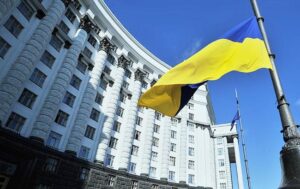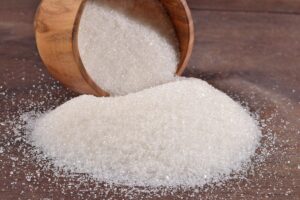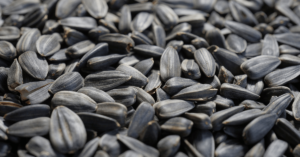
The Cabinet of Ministers has adopted a draft law “On Amendments to the Law of Ukraine ‘On Sanctions’ on the Prohibition of the Use of Software Products and Access to Electronic Information Resources,” which, in particular, proposes to ban electronic websites in Ukraine developed by foreign persons subject to sanctions, according to Taras Melnychuk, a representative of the Cabinet of Ministers in the Verkhovna Rada.
According to his message on the telegram channel, “the draft law proposes to amend the Law of Ukraine ‘On Sanctions’ by defining new types of sectoral sanctions, in particular, a ban on the distribution and use of software products on the territory of Ukraine by legal entities whose components originate in a foreign country, which has been sanctioned under the Law of Ukraine “On Sanctions”, or whose developer or copyright holder is a legal entity (individual) resident of such a foreign state or a legal entity whose share in the charter document is foreign, as well as a ban on the use of electronic websites.
In addition, it is proposed to prohibit the use of software products from entities engaged in terrorist activities, or whose developers or copyright holders are foreign legal entities or individuals subject to sanctions.
Sanctions may also be imposed on software products created using the source or object code of software products or their components subject to sanctions; access to electronic information resources on the Internet (web pages, websites, other web resources), electronic communication networks, electronic communication systems, information systems, information and communication systems may be prohibited.

The National Association Ukrtsukor has asked the Cabinet of Ministers to urgently establish a zero quota on sugar exports to the European Union for 2024 due to the achievement of the maximum volume stipulated by the EU decision for the export of Ukrainian sugar to these countries in 2024, the association reported on Facebook.
“In fact, we are talking about initiating the closure of Ukraine’s border for sugar exports to the EU as soon as possible due to the fact that sugar exports have already reached 262.6 thousand tons, defined as Ukraine’s quota for 2024,” the statement said.
“Ukrtsukor believes that such an appeal is a confirmation of the constructive position of Ukrainian sugar producers and their readiness to integrate into the European sugar market and meet its requirements.
The business association reminded that on May 13, 2024, the Council of the European Union approved the extension of temporary trade liberalization measures for Ukraine for another year, until June 5, 2025. At the same time, it provided for the application of an emergency braking mechanism for particularly sensitive agricultural products, in particular sugar, if imports of these products in 2024 exceed the average imports recorded in the second half of 2021 and throughout 2022 and 2023. Similar emergency braking measures may be applied in 2025 if, in the period from January 1, 2025 to June 5, 2025, the volume of Ukrainian exports exceeds 5/12 of the quota set for 2024.

The Lithuanian Ministry of Energy intends to ban the use of Chinese software during the construction of solar and wind power plants with a capacity of more than 100 kW, said the head of the department, Dainius Kreivis.
According to him, no such restrictions are planned for low-capacity power plants installed by residents of the country.
“We are preparing documents so that all equipment, even in private investments, that generates more than 100 kW, cannot use any Chinese software,” Kravis told Ziniu radijas radio station on Thursday, answering the question whether Lithuania should abandon Chinese technology in the country’s power system.
“That is what we plan to do. I think the decisions we will make will solve the problem,” the minister said.
The Energy Minister emphasized that government agencies are already prohibited from installing Chinese-made software.
According to Kravis, despite the growing number of household electricity producers, there is currently no threat of “excessive use” of Chinese equipment at their facilities.
President of the Lithuanian Confederation of Industrialists Vidmantas Janulevicius said at a meeting of the Seimas Committee on Economics in late March that Chinese software is often used in the construction of renewable energy facilities both in Lithuania and in the rest of Europe. He suggested looking for funds to replace Chinese technology at existing power plants with Western software.

The Government of Ukraine has maintained zero quotas for the export of natural gas of Ukrainian origin, edible salt, anthracite, coal and coal briquettes, gold, silver, as well as precious metal waste and scrap for 2024.
The Cabinet of Ministers published Resolution No. 1402 of December 27 on the list of goods subject to licensing on its website.
According to the resolution, the quotas for the export of liquid fuel (fuel oil), which were in effect in 2023, were preserved – 540 thousand tons (no more than 60 thousand tons per month) and coking coal – 900 thousand tons.
In addition, the government has extended the ban on the export of fuel wood, wood chips or shavings for January-February 2023, after which the export of these goods will be removed from the list of licensed goods.
The licensing of wheat, rye, barley, oats, corn, soybeans, rapeseed and sunflower seeds, soybean, rapeseed, sunflower and mustard oil, and oilcake has also been retained.
ANTHRACITE, BAN, EXPORT, GAS, SALT

The Hungarian government has removed cane and beet sugar from the list of banned Ukrainian products for import after September 15, 2023, Agroinform.hu reported.
According to the report, the Hungarian government’s resolution on measures related to the transportation of certain agricultural products from Ukraine, which restricted the import of 24 Ukrainian agricultural products after September 15, removed the line referring to cane and beet sugar, as well as hard sucrose.
The decision came into force on October 10.
As reported, the European Commission announced on September 15 that it would not extend restrictions on imports of agricultural products from Ukraine to five neighboring EU countries (Poland, Bulgaria, Hungary, Romania and Slovakia) with some conditions to avoid a new surge in supplies.
The restrictions were imposed on May 2, 2023 and concerned imports of wheat, rapeseed, sunflower and corn. These five Eastern European member states argued that Ukrainian agricultural products, when imported duty-free into the EU, were settling with them and harming the local agribusiness sector.
After the restrictions were lifted, Poland, Hungary and Slovakia introduced unilateral bans. Poland expanded the list of products banned for import with rapeseed cake and meal, as well as corn bran, wheat flour and derivatives. Hungary brought the list to 24 commodity items.
Ukraine has filed a lawsuit with the WTO, accusing Poland, Hungary and Slovakia of discriminating against its agro-products.
Ukraine is currently negotiating the introduction of a licensing mechanism for exports of Ukrainian agro-commodities with mandatory verification in each of the five countries.

The Agricultural Ministers of Ukraine and Bulgaria, Mykola Solsky and Kyrylo Vatev, discussed technical issues of Ukrainian agricultural exports to Bulgaria during online talks on Friday.
“The Bulgarian government considers the action plan of Ukraine submitted to the European Commission on the supply of agricultural products acceptable. Bulgaria has its own proposals to the mechanism of licensing certain types of agricultural products proposed by Ukraine. In particular, this concerns sunflower, while Bulgaria has no objections to the export of the other three crops,” the press service of the Ministry of Agrarian Policy and Food of Ukraine reported.
The Bulgarian Ministry of Agriculture and Farming clarified that Vatev familiarized Solsky with the memorandum signed between the Bulgarian government and the initiative committee of farmers, which provides for a ban on the import of sunflower from Ukraine until the end of November.
After this period, a licensing regime for the export of sunflower, wheat, corn and rapeseed will be in place, according to the plan agreed between Ukraine and the European Commission.
Vatev also spoke about the concerns of Bulgarian farmers and processors regarding the imports of refined and unrefined sunflower oil, milk powder, honey, sugar and frozen raspberries from Ukraine.
“It is very important to discuss all the problems affecting our agricultural producers and to look for solutions together,” the Bulgarian minister emphasized.
The ministers agreed to agree on the technical details of the procedure for exporting agricultural products to Bulgaria and discuss their results at the next meeting in the first half of October, the press service of the Ministry of Agrarian Policy reported.
The Bulgarian Ministry of Agriculture added that regular data exchange between the two agricultural agencies will become weekly. It will include the exchange of information on exports and imports of certain agricultural products.